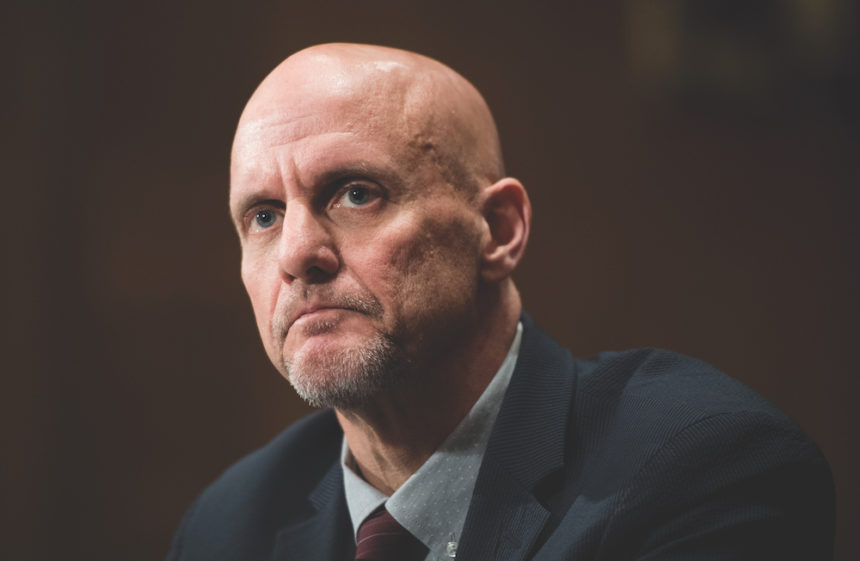For two years, the Food and Drug Administration raced forward, tackling issue after issue under former commissioner Dr. Scott Gottlieb. But when Gottlieb departed, the agency hit pause.
Interim leaders continued Gottlieb’s agenda, but at a much slower pace. Now, as Dr. Stephen Hahn takes the reins at the FDA, industry wonks are wondering whether he’ll continue to advance Gottlieb’s ambitious policies.
Hahn’s views on the FDA’s regulatory mission are more speculative. He has never served in government and his career has focused on research and academia. To that end, his confirmation hearing before the Senate Committee on Health, Education, Labor and Pensions (HELP Committee) didn’t shed much light on his views.
“Dr. Hahn has a very impressive resume and looks good on paper,” says Peter Pitts, president of the Center for Medicine in the Public Interest. “He has a very steep learning curve, having never worked in anything regulatory like the FDA, but others have overcome that and I’m sure he can too.”
Some Senators who questioned Hahn during his confirmation hearing expressed similar concern about his lack of regulatory and public policy experience. The skepticism largely fell along party lines, with more Democrats critical of Hahn, a well-known radiation oncology expert.
Perhaps the most outspoken critic was Sen. Patty Murray (D-WA), ranking member of the HELP Committee. “People are counting on us to do this vetting and do it seriously, especially because the president won’t,” she said at Hahn’s hearing. “I have some reservations regarding Dr. Hahn. He has almost no government experience, no public record on policy issues related to the FDA and no experience leading an organization anywhere near as complex as the FDA.”
Sen. Murray also suggested that Hahn would follow politics — namely, the priorities of President Trump and the Republican party — above other data. But Pitts believes the FDA’s deep bench of scientific experts will prevent the agency from becoming politicized.
“I don’t see this as a signal that the FDA will become politicized,” Pitts explains. “We have to recognize the fact that the FDA is about 99.9997% career public servants and that every employee of every center is a career public servant from the director on down. A new commissioner from the outside can bring in new ideas that will be tempered by career experience inside the agency. That could be good [for the FDA].” Hahn, for his part, stressed that he would make his decisions based on “science and data.”
The speedy confirmation process was a boon for Hahn. If the process had dragged out, the FDA might have coasted for another few months without a permanent leader. This would have sidelined some urgent issues, according to Jon Bigelow, executive director of the Coalition for Healthcare Communication.
He has almost no government experience, no public record on policy issues related to the FDA and no experience leading an organization anywhere near as complex as the FDA.
Sen. Patty Murray (D-WA), ranking member of the HELP Committee
“[Hahn] has the opportunity to either cement Dr. Gottlieb’s initiatives or else take the FDA in a very different direction,” Bigelow says.
The most pressing issue Hahn will tackle as FDA commissioner is e-cigarettes. Within that, there are two main fronts: teen vaping and the vaping lung illness.
As a cancer doctor, it’s expected that Hahn would oppose anything that could in any small way bolster smoking. But while he expressed as much in the confirmation hearing, he was less specific about potential action to curb vaping. Nearly every senator who attended Hahn’s confirmation hearing questioned him about e-cigarettes — and he had a similar answer for each inquiry.
“I’m a lung cancer doctor. I have seen the ravages of tobacco-related cancers; it’s all too real to me. I know youngsters very close to me who use e-cigarette products,” Hahn said during the Senate hearing. “I’m aware of the youth tobacco survey data and this is an important, urgent crisis in this country. I do not want to see another generation of Americans become addicted to tobacco and nicotine and agree we need to take aggressive action to stop that.”
But “aggressive action” was the extent of his commitment, even when pressed for more details by some senators. It’s not surprising that Hahn was cagey about e-cigarette regulations, given that the Trump administration hasn’t quite figured out its own stance on the issue. The White House proposed an all-out national ban on flavored vaping products before walking back the proposal a few weeks later.

The FDA is receiving applications for premarket review of e-cigarettes through May 2020, only a few short months after Hahn takes over as commissioner. Any e-cigarette product on the market today is now required to undergo the FDA’s premarket authorization and Hahn will lead FDA’s evaluation of these products.
As for drugs and drug prices, Hahn expressed support for faster approval of generics and biosimilars to increase competition in the market, a drug price solution the pharma industry has embraced. Along those lines, in the spring the FDA may see the first insulin biosimilars.
Insulin, which has become the poster child for rising drug prices, will transition to a biologic in March. In preparation for that, the agency released a draft guidance in November, shortly after Hahn’s confirmation hearing, laying out its recommendations for the insulin biosimilars.
Finally, Hahn will be tasked with finding solutions for the opioid crisis. During his hearing, Sen. Tammy Baldwin (D-WI) asked about concrete steps he would take to address the issue.
His response didn’t move the needle one way or the other: “Continuing the great work done by laws that Congress passed with regard to packaging and labeling and approaching pain in a holistic way with increased approval of non-opioid products [for pain],” he said. “A comprehensive holistic approach often without opioids can be very helpful in the treatment of pain, including cancer pain. This is a significant problem and what we have to do is balance the relief of suffering with making sure we prevent, as much as possible, misuse and addiction.”
Critics continue to blast Hahn’s lack of experience, but those who support him believe his experience as a doctor, researcher and medical executive will help ease his transition into government life. Pitts notes that to be able to lead the agency, all an FDA commissioner really needs is to understand the agency’s boundaries.
“At the end of the day, the commissioner of the FDA has to recognize the broad mission of the FDA, but also within the boundaries of the FDA,” he explains.
From the January 01, 2020 Issue of MM+M - Medical Marketing and Media







